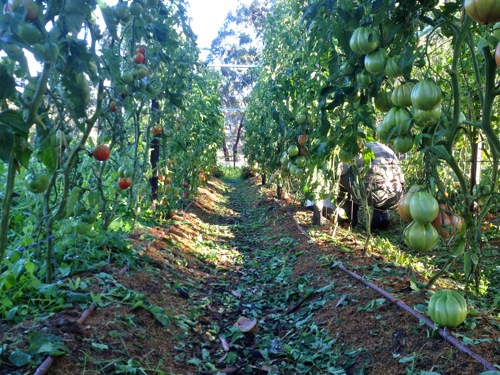He was poverty stricken. Stubborn to take elders’ counsel. Failed to feed his family. Lived hopelessly. Believed in stealing, alcoholism and trouble making, characters that are not in line with the Christian values, those Jesus preached.

His children and family could not appreciate family love. They failed to make ends. Often times, thronged their parents-in-law for food, clothes and financial support.
Malekano Chikupila, Village Head Nzuma in T/A Mazengera in Lilongwe was at the centre of this. He was struck by poverty. However, close to him were untapped fertile land and water.
Few kilometres after Kamphata in Lilongwe as you travel on the M1 Road lies Diamphwe River and vast Dambo land – precious resources for farming as business.
But all Chikupila needed were farming skills and counseling so that he can exploit Diamphwe River and the vast Dambo land for farming as business in a move to live a happier life. He recalls that life became unbearable when he got married.
But now, Chikupila lives a decent life out of farming, which he did not believe could transform him likewise his family members.
How? This follows training sessions by Nkhoma Youth Department under the CCAP Synod – with funding from Y-Malawi through World Vision – held for Nkhoma-Chilenje youths.
“Since I joined the club my life has changed for the better. I used to cause havoc in the area, which is not the case today. I did not mind what trouble to cause. But look, I now contribute positively to the family and development of the community,” explains Chikupila.
Chikupila is a staunch farmer and dedicated church member of the CCAP. Like other members, he too takes advantage of rain and Diamphwe River water to grow cabbage, maize, beans and tomato for subsistence and commercial purposes.
He has iron sheets out of the farming business, a thing he recalls would not have done some years before 2013.
“I bought 15 bags of maize last year to beef up with what I harvested using the money I gained from sales of other farm produce. This year, I expect to sell more and continue with my investments plans,” says Chikupila.
He, however, pleads for timely availability of farm input and field officers so that they have advanced skills in agricultural production in view of the global talk of climate change.
Youths under Diamphwe Club say the presence of more field officers in the agriculture sector is vital for more financial gains.
The club, which comprises 40 members – has seen its members grow maize, tomatoes, cabbage, beans and other crops since inception in 2013.
Through the growth of such crops, various members of the club have prospered in their day to lives such that they are a force to reckon with.
With increased population growth in Malawi, which the United Nations estimates at 16 million, business operators and farmers stand to benefit more if they increase production to meet the demand.
Malawi Government and various local and international organisations think Malawians should regard farming as business if they are to progress in life. These organisations include agricultural and humanitarian ones such as World Vision.
This is why World Vision deputy national director Fordson Kafweku recently echoed by saying that population growth should be regarded as an opportunity for producers to make more profits.
He adds: “It is an issue of demand and supply. If there are more people, it means producers of various goods and services have to boost their production to match with the increasing demand.”
Josephine Jacob, a secondary school student, shared another success story following the introduction of youth clubs in Nkhoma. She comes from a family of four (two boys and two girls).
She says she is can now afford paying school fees for herself. According to her, she sells Mandasi after knocking off from school.
When in class, it’s her relations who sell Mandasi on her behalf.
“I am a member of Diamphwe Youth Club and through my business, I buy clothes, school uniform, shoes and notebooks. On daily basis, I make at least K2 000 (U$2.8) per day. I am also into village savings,” she says.
Josephine explains that life was tough before she attained business, leadership, health and other skills.
She salutes Nkhoma Youth Department and World Vision for the training.
“My parents could not fend for my needs. They struggled buying me school uniform, shoes and clothes, which I can now afford,” she says.
Different youth clubs operate under Nkhoma Youth Department.
According to Kennedy Chabwera Programs Officer for Nkhoma Church of Central Africa Presbyterian Student Organization (CCAPSO) clubs were formed to shape the youths into reliable citizens.
“Those who patronise the clubs have changed their behaviour and that’s what we intend to achieve,” says Chabwera.
He adds that they provide youths with books and any other written literature to improve their business, farming and leadership skills.
Nkhoma Youth Department gets support from Y-Malawi through World Vision for its activities.
By George Mhango (Water Journalists – Africa)
